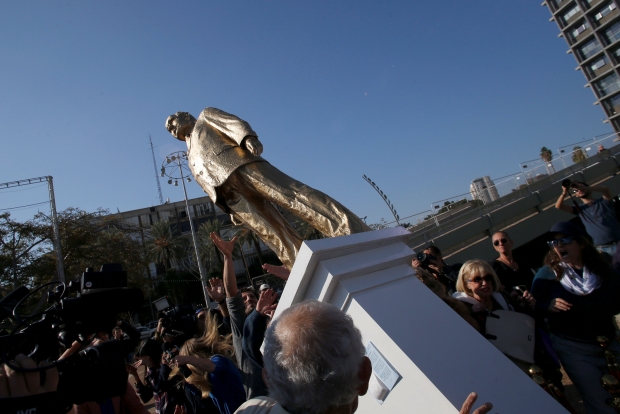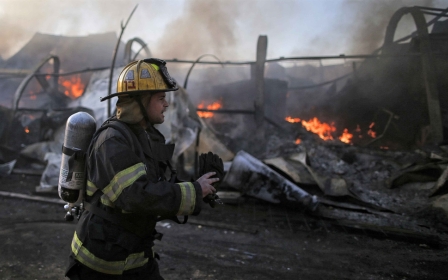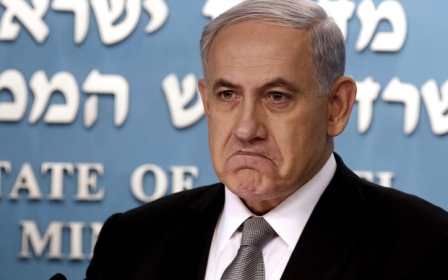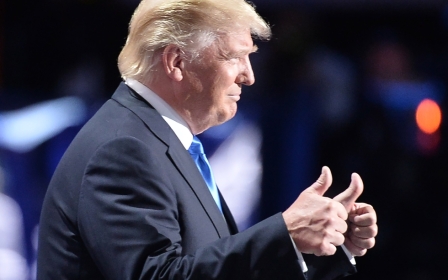Netanyahu 'toppled': Gold statue of Israeli PM taken down by protesters
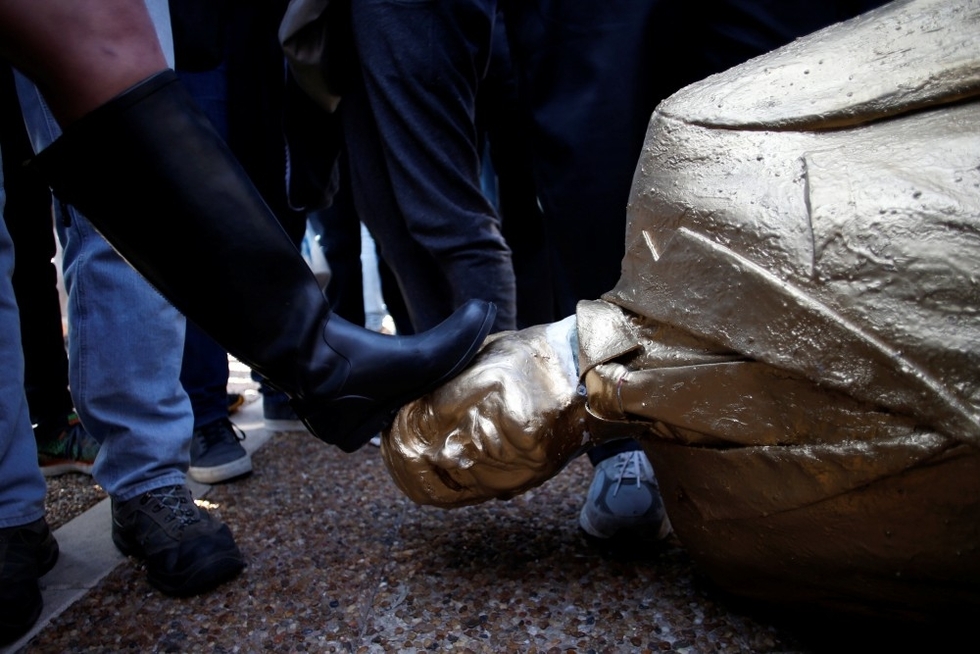
A 13-foot-high golden effigy of Israeli Prime Minister Benjamin Netanyahu was secretly erected in the centre of Tel Aviv in protest against Israel's "culture war" on artistic expression on Tuesday, sparking online controversy and political debate.
The gilded statue was raised overnight in front of the Tel Aviv city hall in Yitzhak Rabin Square, named after the former PM who was assassinated by a right-wing Jewish militant in 1995.
Dubbed "King Bibi" by its sculptor, Itay Zalait, 37, said he wanted to test the limits of freedom of expression in Israel by satirically replicating the kind of statue erected by dictatorial regimes.
"I did it to check one thing: can I do it?" Zalait told AFP. "Will this work be allowed and will there be sanctions?"
Posting on Facebook after the guerrilla-art sculpture was erected, Culture Minister Miri Regev called it an "expression of hatred towards Netanyahu".
"Israel is a democracy, one of the freest countries... the hatred of Netanyahu is their only true Golden Calf," wrote Regev, referring to the biblical episode in which the Israelites are punished by God for idol worshipping.
However, within hours, the Netanyahu statue had been toppled by an angry member of the public.
On social media, Israelis joked that it was reminiscent of the iconic Saddam Hussein statue pulled down after the US-led invasion of Iraq in 2003.
Left-leaning artists have accused Netanyahu's government of seeking to muzzle them, particularly with Regev's promotion of a bill to cut subsidies to cultural institutions deemed not "loyal" to the state.
Netanyahu also leads what is seen as the most right-wing government in Israeli history, and critics accuse him of consolidating power.
Zalait said he wanted to open a debate around Israeli attitudes to Netanyahu by placing the statue at the spot where Rabin, who won the Nobel prize for his peace efforts with the Palestinians, was killed.
"The reaction of the Israelis interests me, from those who say they would like to see more statues like that on the squares of the country to those who want to demolish it with a hammer," he said.
New MEE newsletter: Jerusalem Dispatch
Sign up to get the latest insights and analysis on Israel-Palestine, alongside Turkey Unpacked and other MEE newsletters
Middle East Eye delivers independent and unrivalled coverage and analysis of the Middle East, North Africa and beyond. To learn more about republishing this content and the associated fees, please fill out this form. More about MEE can be found here.


